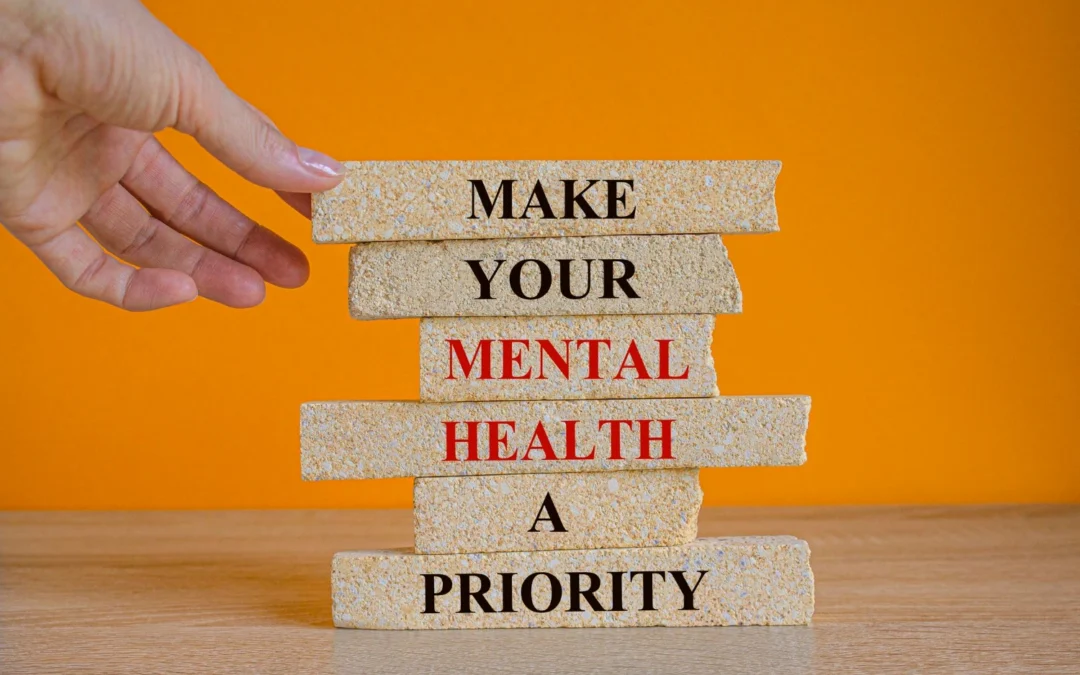A new year represents a fresh start—a chance to reassess priorities and establish mental health goals that enhance overall well-being. As we enter 2025, mental health should be at the forefront of our resolutions. Just as we set intentions for physical fitness and career growth, prioritizing mental wellness is essential for long-term health, resilience, and happiness.
Explore the benefits of setting 2025 mental health goals, provide actionable steps to achieve them, and outline best practices for maintaining consistency throughout the year.
Why Setting Mental Health Goals Matters
Enhances Emotional Well-Being
Creating structured goals helps reduce stress, improve mood, and promote emotional stability. When we establish and work toward positive habits, we build a foundation for mental and emotional balance.
Encourages Mindful and Intentional Living
Setting mental health goals fosters self-awareness, mindfulness, and intentionality. These goals encourage living in the present moment and making conscious decisions that align with well-being.
Builds Long-Term Resilience
By setting realistic and sustainable goals, individuals can develop effective coping mechanisms that improve their ability to navigate life’s inevitable challenges.
Promotes Physical Health
Mental health and physical health are deeply interconnected. Improved mental well-being can lead to better sleep, reduced stress-related ailments, and increased motivation for physical activity and healthy eating.
Actionable 2025 Mental Health Goals
Prioritize Self-Care Daily
Self-care is not a luxury—it’s a necessity. Prioritizing personal well-being leads to improved mental health and emotional resilience.
- Establish a Consistent Sleep Routine – Aim for 7-9 hours of quality sleep each night.
- Engage in Joyful Activities – Dedicate time to hobbies that bring fulfillment, such as reading, music, art, or nature walks.
- Set Boundaries – Learn to say no and create healthy limits to prevent burnout.
Implement Stress Management Strategies
Chronic stress can take a toll on mental and physical health. Proactively managing stress can lead to a more balanced life.
- Practice Mindfulness and Meditation – Even 5-10 minutes daily can help center the mind.
- Incorporate Deep Breathing Exercises – Techniques like diaphragmatic breathing or box breathing can instantly calm the nervous system.
- Limit Social Media Consumption – Reducing screen time can decrease anxiety, negative self-comparison, and information overload.
Seek Professional Support When Needed
Mental health professionals can offer invaluable guidance and support in managing stress, anxiety, depression, and other challenges.
- Explore Therapy or Counseling – Whether in-person or via drug rehab telehealth, speaking with a licensed professional can provide personalized tools for well-being.
- Join Support Groups – Connecting with others experiencing similar challenges fosters a sense of community and shared growth.
- Use Mental Health Apps – Platforms like Calm, Headspace, or BetterHelp can supplement self-care routines.
Strengthen Personal Relationships
Meaningful connections are vital for mental health. Strong support systems can improve overall happiness and provide encouragement during difficult times.
- Surround Yourself with Positive Influences – Spend time with people who uplift and support you.
- Communicate Openly and Honestly – Healthy conversations lead to deeper relationships and reduced misunderstandings.
- Schedule Regular Check-Ins with Loved Ones – A simple text, phone call, or coffee meet-up can help maintain strong bonds.
Cultivate Gratitude and Journaling Practices
Gratitude and reflection can significantly improve mental health by shifting focus to positive aspects of life.
- Start a Gratitude Journal – Write down three things you’re grateful for each day.
- Express Appreciation to Others – Acknowledge and thank people who bring positivity into your life.
- Write Reflective Entries – Journaling emotions and thoughts can provide clarity and emotional release.
Challenge Negative Thought Patterns
Self-doubt and negative thinking can be barriers to personal growth. Reframing these patterns can foster self-compassion and confidence.
- Practice Positive Affirmations – Replace negative self-talk with constructive and encouraging statements.
- Reframe Setbacks as Learning Opportunities – View mistakes as part of the growth process rather than failures.
- Embrace Imperfection – Understand that progress, not perfection, is the goal.
Engage in Meaningful and Purposeful Activities
Purpose-driven actions contribute to a sense of fulfillment and mental clarity.
- Set Career or Personal Growth Goals – Pursue goals that align with values and aspirations.
- Volunteer or Give Back – Helping others can boost mood and increase life satisfaction.
- Explore New Interests – Trying new hobbies or learning new skills can bring excitement and joy.
Best Practices for Achieving Mental Health Goals
Use the SMART Goal Framework
Ensure goals are Specific, Measurable, Achievable, Relevant, and Time-bound for increased success and motivation.
Start Small and Build Consistency
Rather than making drastic changes, focus on small, sustainable actions that gradually accumulate into long-term success.
Track Progress and Adjust When Necessary
- Use journals, habit trackers, or mental health apps to monitor daily progress.
- Reassess and refine goals if they become overwhelming or unrealistic.
Celebrate Every Achievement
Recognizing progress, no matter how small, boosts motivation and reinforces positive habits.
Practice Self-Compassion
Understand that setbacks are normal. Instead of self-criticism, approach challenges with kindness and perseverance.
Need Additional Support?
If you’re looking for professional guidance, therapy, or mental health resources, California Recovery Center offers expert support to help you build a healthier, happier future.
Start fresh. Set your mental health goals today, and make 2025 your most balanced year yet!
Prioritizing mental health in 2025 can lead to a more balanced, fulfilling, and joyful life. By taking intentional steps, setting realistic goals, and integrating wellness practices into daily routines, individuals can create long-term habits that support mental well-being.


